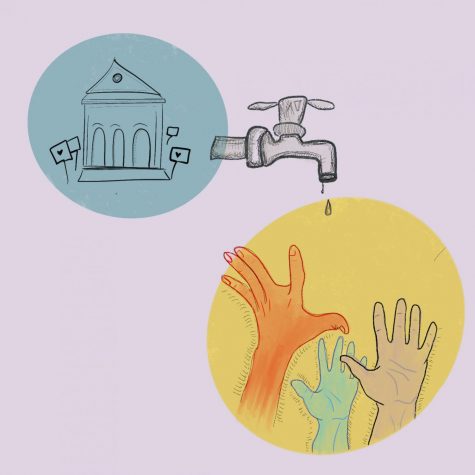For PWIs, affirmative action policies are not enough
April 15, 2021

When institutions adopt affirmative action policies, they pledge to undertake a set of practices and policies that advocate for the inclusion and representation of minority groups in spaces where they are usually underrepresented. Such policies are considered standard practice throughout the employment and admissions processes. For the most part, affirmative action has yielded positive results in increasing the accessibility of educational and job opportunities for minority groups that often face discrimination.
However, that has not eliminated the income and education gaps that exist between whites and minority groups. Additionally, institutions do not take necessary steps to foster inclusion after putting into effect affirmative action policies. As long as they have reached their “diversity” quota for the year, minorities are, more often than not, left to fend for themselves after that.
This is why predominantly white institutions (PWIs) need to do more than affirmative action if they genuinely care about their minority students. By increasing the presence of minority faculty, counselors and guest speakers on campuses, only then will PWIs vividly portray their dedication to the success of their minority students.
While there are counseling services on college campuses with varying degrees of effectiveness, counselors’ lack of diversity is unsettling. Minority students come onto campus and find themselves with the emotionally and mentally taxing job of navigating predominantly white spaces while trying to go about their everyday lives.
As if that’s not enough, they have nobody to provide the mental and emotional support they need. Counselors who are there may not relate to how the student is feeling, which is not helpful and might deter students from seeking help at all. By hiring and retaining counselors of color, schools would aim to prioritize the mental health of their minority students.
Above all, POC students in PWIs are often tasked with having to spark conversations around safe spaces, diversity and inclusion, which, in my opinion, makes their college experience different from everyone else’s. Although these conversations are essential, and those who feel they can carry them are more than welcome to do so but, placing the responsibility solely on minority students is harmful.
It is clear that affirmative action cannot work independently and that institutions need to supplement it. Again, it does not address the immediate problems related to the reason(s) why minorities struggle to penetrate work and educational spaces and the inequalities that exist in those spaces.
Still, it may be deemed as a step in the right direction only if institutions provide spaces and resources such as adequate mental health facilities and increasing the representation of POC faculty. Institutional reforms along with Affirmative Action would result in a healthy working and educational environment for all the parties involved, which is a standard requirement in reaching one’s maximum potential.






Will • May 15, 2021 at 12:00 pm
You say affirmative action in hiring and admissions is not enough, then you say the solution is more affirmative action.